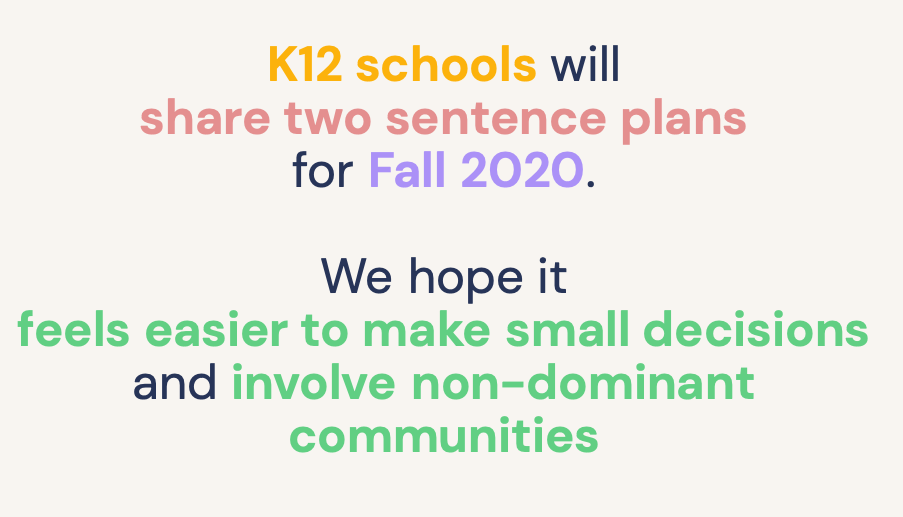Over the past ten years, Nidhi (currently a Tech Policy Fellow at the Aspen Institute) and Yusuf (a researcher in the MIT Media Lab's Lifelong Kindergarten group) taught in and outside of schools, developed technology used by millions of learners and educators, and worked with communities that strive to do the best they can for their learners.
Well before the pandemic, we kept running into a common theme: although many educators experiment, improvise, and try new things, most find themselves in contexts where doing so can be discouraged, feel scary or appear too 'high-stakes.'
We would often hear "What if we fail?" and "How can we be sure?" – questions and feelings that can stifle the creative work that is at the heart of teaching and learning.
The fears and constraints we've encountered over the last ten years have been compounded under the pressures of the ongoing pandemic. Uncertainty, growing awareness of systemic inequities, technological barriers, and disruptions to the social fabric of schools have made teaching, planning, and supporting students much harder.
But the current crisis also offers a unique opportunity. Decision making before the pandemic wasn't always inclusive – nondominant voices were often excluded. Testing constraints and budget cycles often limited flexible changes – not to mention the myriad cultural, organizational, political, and resource challenges that schools have long grappled with.
Because the uncertainty of the pandemic doesn't allow for long-term planning, it offers an opportunity to try new things – to amplify efforts for bottom-up and grassroots innovation, for agile and adaptive planning. By sowing the seeds for naming and sharing small decisions as experiments, we hope to not only make planning amidst uncertainty more inclusive, but further hope to seed experimental cultures and practices that might influence our education systems well beyond our current crises.
In the true spirit of experimentation, we are testing a hypothesis here. We believe that if we de-stigmatize failure and create room for schools to learn, together with their communities, we might allow schools to make better decisions – every day, until school works well for all students. The only way to ensure we fail is to do what we’ve always done. We believe that if schools are supported to make flexible, temporary decisions, in partnership with students and families, then we can make the best decisions over time, together. When #schoolslearntoo.
Alongside our incredible school partners, we commit to honestly and transparently share what we learn through this process, in hopes that others can build on our work.
Have questions, ideas, feedback, or want to connect? Email us at schoolslearntoo@mit.edu.
